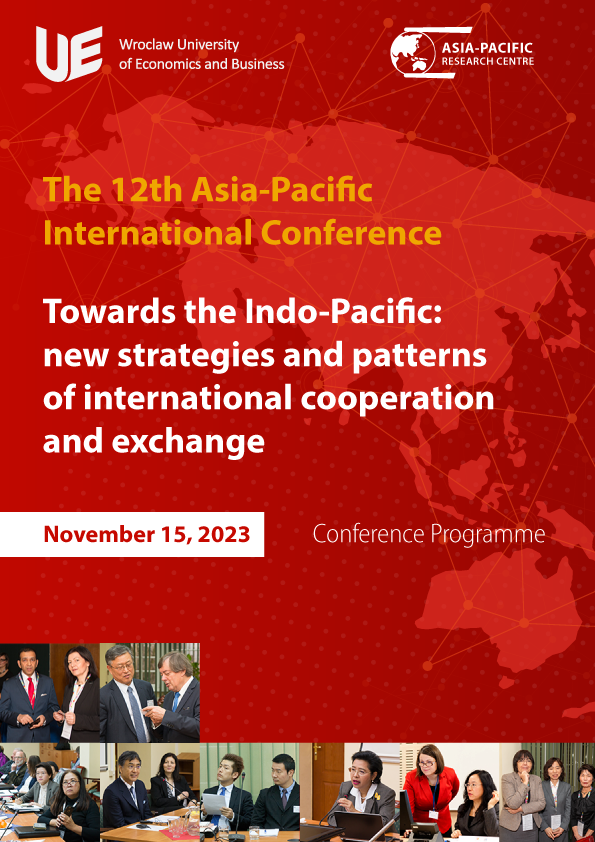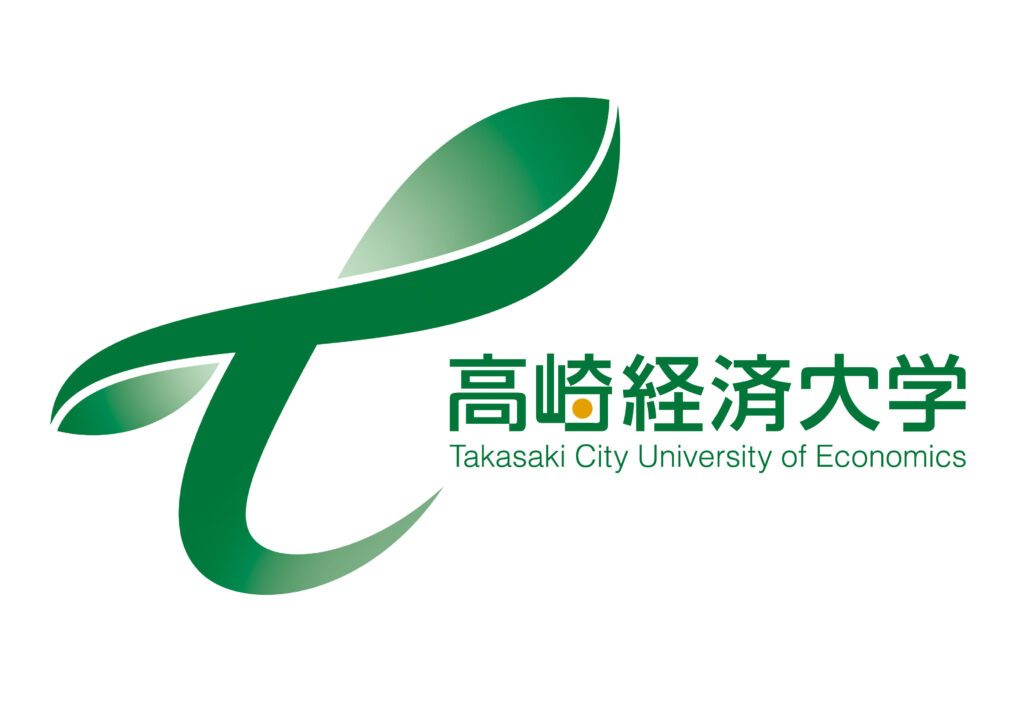ACADEMIC SESSION INovember 16, 2021
|
|
| Chair: Dr. Szymon Mazurek Director of the Asia-Pacific Research Centre Wroclaw University of Economics and Business |
|
| Opening & welcome | |
| Tran Thi Thu Hoai Military Joint-Stock Commercial Bank, Vietnam, Dr. Phung Thanh Quang National Economics University, Hanoi, Vietnam The effect of COVID-19 pandemic on the global FDI: risks and policy implications for Vietnam |
The Covid-19 pandemic has critically affected the global FDI flows since late 2019. The decline not only in new investment but also M&A flows took place internationally in 2020, with a plummet in the value of 42%, which was the highest decrease since the financial crisis of 1997-1998. The authors analyzes new features of global FDI inflows in the context of the pandemic, indicating the impacts of Covid-19 on global FDI flows in the short, medium, and long run. Moreover, the current state of Vietnam’s FDI inflows as well as the new features of FDI inflows in Vietnam are also evaluated in the context of the pandemic. On that basis, the authors propose some policy recommendations to enhance FDI attraction in the context of uncertainty. |
| Dr. Karina Jędrzejowska University of Warsaw Dr. Anna Wróbel University of Warsaw The Regional Comprehensive Economic Partnership: New Asia-Pacific Trade Agreement and its Implications for the European Union in the Post-COVID Global Economic Order |
Last November the ASEAN nations together with China, Japan, South Korea, Australia, and New Zealand signed the Regional Comprehensive Economic Partnership (RCEP) – the world’s largest free trade agreement in GDP terms, and the biggest trade deal in the Asia-Pacific region. The signatories of the agreement can expect multiple benefits from its implementation ranging from lower tariffs, through advanced intellectual property regulation to newly defined rules of origin. Yet even though the advantages of the agreement seem substantial, one cannot forget about the points it fails to address. These include inter alia regulations regarding labour provisions and state-owned enterprises. Not to mention the fact that the third biggest economy in the region – India – decided to opt out of the agreement. From the European perspective, RCEP can be seen as a mega-trade deal incorporating major Asian economic powers: China, Japan and the Republic of Korea, and their major trading partners within Asia. Even with the free trade agreements bet ween the EU and Japan, South Korea, and Vietnam in existence, most of the European exports to the RCEP are not covered by preferential trade agreements. Therefore, in the long-run implementation of RCEP might cause some trade displacement and readjustments within global value chains. On the other hand, European exporters might benefit from the area’s – hopefully – higher income and resulting higher demand for European goods, while importers might benefit from the greater efficiency of regional value chains, and lower prices of both intermediate and final goods. Given the above, the purpose of the paper is to review the possible implications of the RCEP agreement for the European Union and its relations with the Asia-Pacific region in the post-COVID global economic order. The paper assumes that despite seemingly limited economic implications of RCEP for the EU in the short-run, in the long-term perspective the new Asia- Pacific might have substantial impact on the European economy. Given the central role of China in this trade agreement and its growing impact on global economy the developments within the region might have a long-term impact on the balance of global economic power, and as such the RCEP agreement might affect the EU more than anticipated. Moreover, India’s decision not to participate in RCEP together with the Indian government’s efforts to outweigh negative effects of China’s rise on its economy might lead to an intensified economic cooperation with the EU – the India-EU ‚Comprehensive Connectivity Partnership’ might be interpreted as an indication of. To meet the above goal of the paper, the authors attempt at outlining the major provisions or the RCEP agreement and discuss how its major provisions may affect the European Union’s economy. In particular, the authors seek to answer the following questions. First, what are the implications of RCEP for the EU’s Common Commercial Policy and EU’s trade relations with Asia-Pacific. Next, what implications the RCEP agreement might have for trade in financial services between the European and Asia-Pacific economies. Finally, the authors want to make projections about long-term impact of RCEP on the global economic balance of power, and the position of the EU and Asia-Pacific within it. |
| Dr. hab. Tomasz Białowąs Maria Curie-Skłodowska University Dr. hab. Paweł Pasierbiak Maria Curie-Skłodowska University Dr. Monika Wojtas Maria Curie-Skłodowska University Specialization of Asian economies in global value chains |
The development of global value chains (GVC) is one of the characteristic features of the contemporary world economy. As a consequence of the process, the dynamics and value of international trade are growing, and the geographic and commodity structure of flows are changing. Moreover, the development of trans-border value chains that leads to changes in the labour and capital productivity and the intensification of cross-border technology transfer influences the economic development of the countries involved. One of the key regions involved in developing global value chains is Asia, with some countries such as China, Japan, and South Korea being more active in this regard. This diversity of engagement in global value chains is analysed in this paper. The article aims to define the current specialization of selected Asian countries in global value chains. Based on extensive databases, specialization indexes will be calculated, allowing to determine the specialization and position of selected countries in global value chains. The time range of the analysis covers the years 2005-2015, which is mainly due to the availability of statistical data. |
| mgr Zuzanna Kamykowska Cracow University of Economics Chinese art market after COVID-19 pandemic |
The year 2019 and the COVID -19 pandemic brought a significant shock that affected all sectors of the economy, in particular the art market. The only art market that has resisted the visible effects of the crisis is the Chinese art market. Despite the sharp drop in the number of transactions (-40% compared to 2019), thanks to the large number of high-level sales in the second half of the year, turnover on the Chinese art market in 2020 increased by approx. 2%. The COVID-19 pandemic has been a catalyst for change in the Chinese art market, and Chinese auction houses, dealers and artists are now stepping up their opportunities with online sales platforms, social media offerings and a greater emphasis on data and analysis. The publication aims to reveal the economic, social and political consequences of the pandemic for the current state of Chinese art market |
| Dr. hab. prof. UEW Artur Klimek Wroclaw University of Economics and Business Firm-level evidence on the reconfiguration in global value chains |
The presentation is aimed at explaining changes in global sourcing by multinational enterprises due to tectonic shifts in international flows of inputs. The chain of events which was started by the Great Financial Crisis, followed by trade tensions and eventually by the global pandemic had a great impact on international trade. Using firm-level data I attempt to investigate changes in networks of multinational enterprises over the period of time. I measure the dynamics in the global structure of sourcing arrangements with respect to characteristics of multinational enterprises. The findings underline the need to focus on firm-level configuration of GVCs. |
| mgr Paweł Brusiło Wroclaw University of Economics and Business Development of the Asia-Pacific energy sector in the time of COVID-19 pandemic crisis |
The COVID-19 pandemic crisis had a severe impact on the energy sectors of the Asia-Pacific economies. The restrictions imposed locally and the global challenges that arise from this unprecedented health and economic crisis had a multidimensional influence on energy supply and demand in 2020-2021. The exemplification of the COVID-19 pandemic effects are, for instance, violent fluctuations of fossil fuels prices (including oil, natural gas, and coal), the overall decline in energy demand, but with higher demand in the residential sector, as well as, last but not least, limitations in transportation and mobility. My presentation aims to review and discuss the most significant challenges the Asia-Pacific energy sectors faced in 2020-2021. Furthermore, I will present some of the opportunities that arise from the COVID-19 pandemic crisis in the context of the decarbonization of the energy sector concerning renewable energy sources. |
| mgr Marcin Majewski Wroclaw University of Economics and Business How Does Covid-19 Infuence E-Commerce in China? |
The purpose of this article is to investigate the impact that the COVID-19 pandemic has had on e-commerce in China. The research method used in the article is a questionnaire. The results show that the Chinese, influenced by the pandemic, are making more purchases online for an increasing share of their income. They spend more and more time shopping online instead of going to malls. The pandemic has not had a noticeable impact on payment methods and on browsing more applications than websites. The purchasing categories of e-commerce have changed significantly. More and more expenses are spent on health and home as well as a garden. Compared to 2018, large drops can be observed in categories such as tourism, electronics and entertainment. |
| Dr. Anna H. Jankowiak Wroclaw University of Economics and Business Strengthening The Role of Local Clusters in Post-Pandemic Global Value Chains |
In the last decade, the development of such phenomena as outsourcing, offshoring, disruption of the production chain or innovative regional clusters can be observed. Several phenomena that shape the global economy have a direct or indirect impact on supply chains and the location of production plants around the world. Currently, undoubtedly a phenomenon that has changed the world’s strongest trends was the pandemic Covid – 19. The impact of the pandemic is multidimensional and visible in virtually every area of economic, social and even cultural life. There are also phenomena observed in recent years related to the New Industrial Revolution, protectionist policies pursued more and more often, as well as activities aimed at sustainable development and care for the environment. The article aims to present the possibility of including local clusters in global production chains as a consequence of technological changes as part of the New Industry Revolution, national policies and sustainability policy as well as the economic slowdown related to the Covid-19 pandemic. Currently, global value chains are shortening and production is more geographically concentrated. Reconfiguration of supply chains and directing them to the local direction can contribute to the development of local clusters, which are a combination of companies often constituting a comprehensive production chain located in one place. |
| Discussion | |
The 13th Asia-Pacific International Conference 2024
Navigating Global Risks: The Role of Cooperation in the Indo-Pacific's Future














